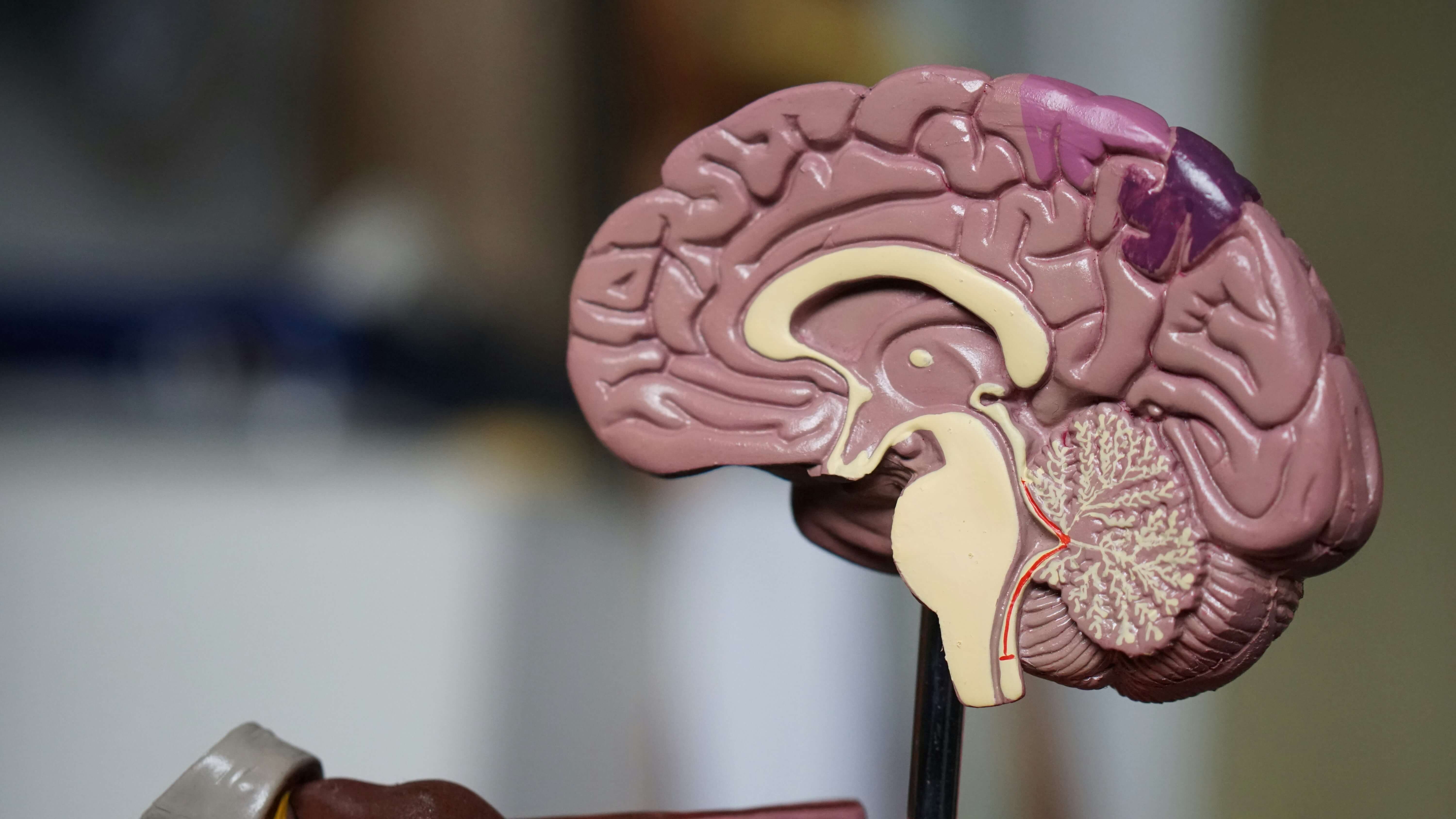The Link Between Your Brain and Visceral Fat
October 14, 2025

We’ve known for a long time that obesity has a strong link to brain health. While many continue to use their BMI as a health indicator, emerging research suggests that we should reconsider focusing solely on weight and height as measurements. Let’s take a closer look at the dangers of visceral fat and consider how DEXA scans are becoming the superior health measurement tool, especially compared to BMI.
The Dangers of Visceral Fat
To truly understand this link, we have to understand what visceral fat is and how it affects our health in general. Visceral fat is the fat that accumulates in the abdomen. The problem with this fat is that it is stored deep inside the abdomen and surrounds vital organs, like the pancreas, the intestines, and the liver. These organs all play incredibly important roles in helping the body function normally.
When visceral fat collects and surrounds these organs, it puts pressure on them. This can have a negative impact on how they function.
Research has linked excess visceral fat to several diseases and health problems:
- Heart Disease: The heart is an incredibly important organ in your body. It pumps blood throughout the blood circulatory system, ensuring tissues in your body get access to nutrients and oxygen. Excess visceral fat can cause an increase in blood pressure and certain types of cholesterol; these are considered risk factors for developing heart disease.
- Type 2 Diabetes: There’s also a strong link between visceral fat and type 2 diabetes. Visceral fat can cause problems with the body’s insulin sensitivity. In turn, this contributes to the development of insulin resistance, which increases the risk of type 2 diabetes.
- Cancer: There are studies that have linked having too much visceral fat to a higher risk of developing certain types of cancers. The major concerns here are colorectal and breast cancer.
- Stroke: Research also shows that people with a higher amount of visceral fat tend to have an increased risk of experiencing a stroke.
Emerging research shows that visceral fat also affects the brain.
Study Links Visceral Fat to a Negative Impact on Brain Health
A Japanese study, published in the Nature Mental Health Journal, focused visceral fat affects the brain, focusing on brain morphology, which is the structure and shape of the brain They found that fat accumulation in the arms, legs, trunk, and visceral areas all had different effects on the brain.
In fact, individuals with a higher level of visceral fat had significant changes in their brain structure. The microstructure of white matter, for example, was different among these individuals compared to those with a lower amount of visceral fat. White matter facilitates the transmission of information between different areas of the brain, enabling various cognitive functions such as learning, memory, and problem-solving. Apart from white matter, the researchers also found a negative association between visceral fat and brain age, as well as overall cognitive function.
BMI alone does not have the ability to provide an overview of visceral fat. Thus, the study deemed the BMI measurement as insignificant when assessing how body fat accumulation affects the brain and cognition. Instead, DEXA scans were the superior measurement tool, as they provide a more complete view of the body and how fat is distributed, including visceral fat.
Visceral Fat and Alzheimer’s Disease
Apart from affecting the physical structure of the brain, there’s also evidence that shows visceral fat holds a link to Alzheimer’s disease. In fact, some studies have even found it could be a strong indicator and predictor of Alzheimer’s risk.
A research paper in the Neurochemical Research Journal investigated the current evidence on visceral fat and its relation to Alzheimer’s disease. The researchers provide a detailed overview of how this connection exists, noting a relationship between visceral fat and the risk of developing Alzheimer’s disease.
Fat in the abdomen has a pro-inflammatory effect in the body. There are specific mechanisms by which this connection was made in the study:
- Tissue Hypoxia: Obesity is linked to tissue hypoxia, which means cells do not get enough oxygen. This can lead to tissue injury, as all cells depend on a healthy supply of oxygen to function properly. In turn, cellular damage causes problems with how these cells function.
- Adipocytokines: These are proteins that are released by adipose tissue. When there is an excess amount of visceral fat, more adipocytokines are released; this has been linked to the promotion of low-grade inflammation. Also known as systemic inflammation, a kind of inflammation that you don’t notice right away. It develops gradually and can be very damaging to bodily tissues.
- Pro-Inflammatory Cytokines: Another issue is the fact that excess visceral fat is a known contributor to the release of pro-inflammatory cytokines in the body. This creates oxidative damage to cells.
These mechanisms cause gradual damage not only to the abdominal area, but other areas of the body. A problematic cycle also begins to develop. Low-grade inflammation starts to affect various areas of the body, leading to oxidative damage to cells. This oxidative damage, often linked to the presence of free radicals, then causes more pro-inflammatory cytokines to be released. Thus, it continues to contribute to the low-grade inflammation.
Why DEXA Scans are Better Than BMI
These findings call for better measurement tools in how brain health is assessed.
BMI solely uses weight and height, but does not account for muscle mass and lacks the ability to provide data on how fat collects in different parts of the body.
This is why DEXA scans are a better choice for monitoring body composition, and in turn, disease risk. DEXA scans are designed to provide a comprehensive overview of body composition. DEXA scans can show you exactly how much fat you have in the body and show an overview of how the fat is distributed. It makes it easier to identify large deposits of visceral fat, which can be exceptionally helpful when you try to manage your risk of diseases.
DEXA scan results include the following data:
- Fat mass
- Lean mass (Muscle)
- Bone mass
Conclusion
Body mass index has been used for a long time to help people understand their health. However, researchers have been questioning the efficacy of this measurement tool. With recent findings showing a strong link between visceral fat and poor brain health, it’s important to look at strategies that offer more accurate data. DEXA scans hold the potential to reveal many more details about body composition, including a visualized result of visceral fat.
References
https://www.nature.com/articles/s44220-025-00501-8#Abs1
https://pubmed.ncbi.nlm.nih.gov/36409447/
https://pmc.ncbi.nlm.nih.gov/articles/PMC10216288/
https://med.stanford.edu/news/insights/2024/11/bmi-body-mass-index-alternatives-science.html
